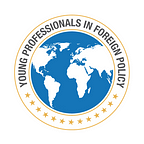Uncertainty in Germany Leaves Europe Nervous
By Andy Laub
Angela Merkel’s reelection as German Chancellor in September was heralded a victory against populism and a stabilizer of Europe; however, just three months later, failed coalition talks have left EU partners worried.
Initial hopes that the grand coalition of Merkel’s Christian Democrats (CDU) and the Social Democrats (SPD), which governed the country for the last four years, would continue were dashed on election night when SPD leader Martin Schulz announced that the party would lead the opposition. Efforts were then made to form a “Jamaica Coalition” with the Green party and the Free Democratic Party (FDP), but talks failed in November when the FDP walked out. There had also been talks of forming a minority government, where Merkel would remain Chancellor, but would need a different coalition to pass each piece of legislation. But these were sidelined in early December when the SPD changed course again, announcing that the party will enter grand coalition talks. These events have placed German politics in limbo and raised questions about it leadership. Regardless of the coalition formed — and it increasingly looks like it will be the grand coalition — Merkel’s position is weakened.
Enter the Alternative fur Deutschland (AfD) the far right populist, anti-immigrant, and Euro-skeptic party born out of the backlash to globalization across Europe. They came into existence in 2015 in opposition to Ms. Merkel’s immigration policy of granting nearly a million refugees asylum and felt she wasn’t an appropriate “conservative” standard bearer. The AfD beat out Merkel’s party in several regional elections and received the third-most votes of any party at 13 percent, entering them into the Bundestag for the first time with about 90 members. But the AfD is not Merkel’s only obstacle to reestablishing governing capacity, Mr. Schulz also made news at the SPD conference when he called for a “United States of Europe” — a term first uttered by former British Prime Minister Winston Churchill — to be formed on issues such as improved education, combating climate change, and being welcoming to migrants. This concept is in line with liberal thinking that greater integration is beneficial and leads to greater peace and prosperity, superseding that of the nation-state balance of power model. The idea was immediately rejected by Chancellor Merkel and her conservative allies as non-starter for coalition talks, highlighting the space between the two parties on Germany’s future.
Germany’s domestic uncertainty is problematic for the European Union. Following Macron’s victory in France & Merkel’s in Germany, the two nations were prepared to lead the European Union through Brexit’s uncertainty and establish a strong future, keeping the bloc intact. The Franco-German partnership — centered on the personalities of Macron and Merkel — is the EU’s key driver, and without its German counterpart, France is left isolated and in search of other partners. President Macron acknowledges his need for a strong and stable Germany in order to sustain the European project, noting that a German political crisis was “not in their interest” and that “for Germany and for Europe, we want our main partner to be stable and strong, to move forward together.” Macron’s sentiments are echoed across Europe, which has become accustomed to Merkel’s stability. In her twelve years of leadership, Germany has led in the fields of climate change and education, and has established a foreign policy presence, diplomatically in the Iran Nuclear Deal in 2015 and Chancellor Merkel’s offer to mediate talks with North Korea. Germany has become a leader on the global stage as well as in European politics as exemplified by her leadership role in the ongoing Brexit talks. As Princeton Professor and leading liberal international relations scholar John Ikenberry recently put it she is “the leader of the country that perhaps most embodies the virtues and accomplishments of the postwar liberal order, is uniquely positioned to speak as the moral voice of the liberal democratic world.” But without a government behind her, Merkel is less effective internationally given that she is caught up too much with problems at home. Luckily, Germany’s political crisis is most likely only short-term and it is likely that a grand coalition government will be formed shortly after the New Year.
However, the real X factor to Merkel’s governing capacity — assuming a grand coalition is formed — will be the role of AfD as an opposition party in parliament. If a grand coalition is established, the AfD, as the largest of the opposition parties, will, according to constitutional rules, be allotted certain rights, such as a prominent placing on the budget committee. The AfD has shown no desire to cooperate with Merkel and promises only to be a disruptor; they have already called for an investigation into Chancellor Merkel over her immigration policy. With ninety seats they aren’t bound to get that far, but what is the long-term impact more broadly? If the AfD continues as an oppositional force with broad representation, Germany’s relationship with the EU will undoubtedly change, Only time will reveal the impact of the AfD on German — EU relations, but let’s give Germany the chance to get its own house in order for the moment.
Andy Laub is a recent graduate of NYU receiving his Masters in International Relations. He has done extensive work on North Korea, Russia and Europe. He previously served as an aid to Congressman Eliot Engel (NY-16) Ranking Member of the House Foreign Affairs Committee.
The opinions expressed in this article are the author’s own and do not reflect the views of their employer or Young Professionals in Foreign Policy New York.
